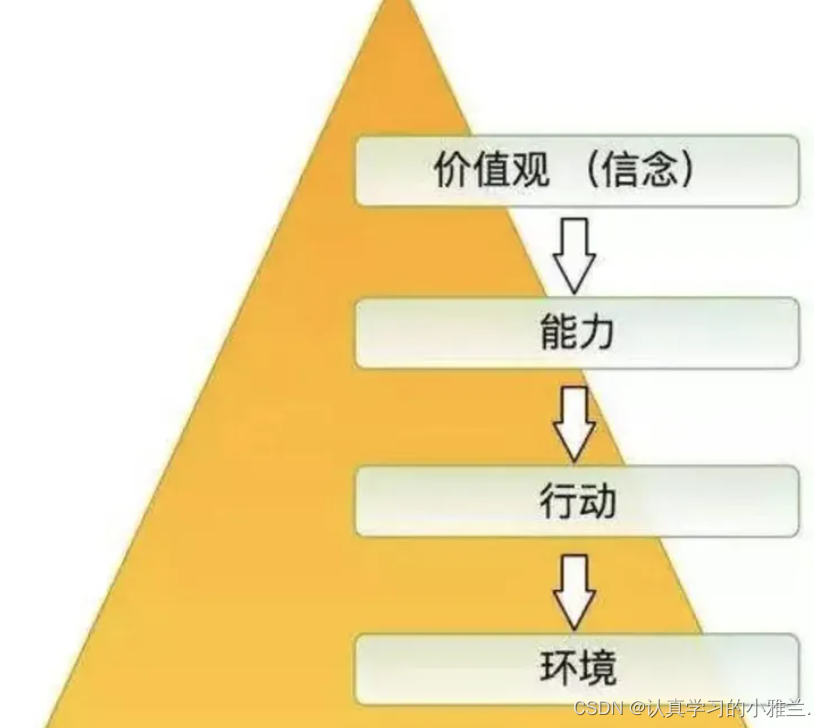Direction 1: Share things that make you have strong mood swings at work
Programming is just the practicalization of the engineering process. If you put it into it, you will really concentrate, and you will rack your brains and even scratch your head during the troubleshooting process. When you find that the problem cannot be solved, you might as well put it down and think about it. , such as thread management, memory management, the use of locks, etc., through the book network to understand knowledge points, and then code practice verification, when solving problems, I will experience "manic poetry and books", and it is the experience gained through repeated failures. The accumulation of technology, the improvement of technology, the lessons of failure are as valuable as the experience of success; the engineering practices just mentioned, such as graphics rendering, cannot be competent with programming syntax, and the rendering principle behind it is often more important, just a few lines of code The principle refracted is really worth pondering. After all, many interfaces encapsulate the internal principle implementation. Only by understanding the specific implementation can we use the drawing interface better, such as how to efficiently anti-aliasing, texture mapping interpolation algorithm, drawing window size, etc. Otherwise, it will appear Rendering distortion, black screen, edge jagged and other phenomena will be helpless ; therefore, when you are nervous and anxious, it is often the time to supplement knowledge and supplies. Let it go to understand and explore, sharpen the knife and cut wood by mistake. The current slowness is for the future. Fast !

If the job you are engaged in makes you feel unhappy or even have big mood swings when doing things, will you change industries or jobs?
Being unhappy or emotional is an objective manifestation, and the essential reason must first be found out.
Is it because you don't like the job, or you're not good at it, or your leadership and colleagues deliberately make things difficult for you, or you're just a grumpy person.
The actions to be taken in different situations are different. If you really don’t like it and are not good at it, and you have other jobs you like and are good at, you can naturally change jobs.
If the leader or colleague deliberately makes things difficult for you, check to see if it is workplace pua, whether there is a problem with your words and deeds, and find a solution from the root cause. If it is not enough, then consider changing jobs.
If it is the last situation, your temper is not good in daily life, so let's understand yourself first.
Most people change jobs because they are unhappy with their current job, or because they don’t get along well with their leaders, so they decide to change jobs impulsively.
Changing jobs because you are unhappy with them is typical of thinking about changing jobs at the context level.
So what is the environment layer?
The level of thinking of different people is very different. Most people fall within four levels of thinking: Environment, Behavior, Ability, and BVR (Values, Beliefs, Rules).
Environmental layer: The lowest level of thinking is the environmental layer. What is the environment? That is, everything except you can be regarded as the environment: weather, leaders, family members, transportation, housing prices, commodity prices, etc.
When a person at this level is not good, he will attribute all the reasons to "because the environment is not good". for example:
The job is not done well because the leader is an idiot... The promotion and salary increase is because other colleagues used abnormal means... Being late for work is because the government's road planning is too bad and the traffic is too heavy. .....
When it comes to changing jobs, you must, must, must, must say goodbye to environmental thinking! ! !

Track Two: Share Your Emotion Regulation Skills and Strategies
- Situation selection strategy : Situation selection strategy is to adjust emotions by choosing favorable situations and avoiding unfavorable situations. Specifically, we selectively approach or stay away from certain people, certain events or certain occasions to adjust our emotional state. For example, if a child who has encountered school bullying cannot get out of negative emotions such as fear, anger, and sadness in a short period of time, he can take a break from school for a period of time or transfer to another school to avoid the unfavorable environment, which is helpful for emotional regulation; Another example is that when we comfort a person who has just lost love, we often advise him to try to avoid going to places where he was in love and dating before, and to look less at group photos in the past, so as not to be hurt by the scene.
- Control and modification strategies : Control and modification strategies are a more active strategy that refers to the process and outcome of an emotion regulator's attempt to control the emotion by controlling the situation. For example, the older children in the family will give toys to the crying little brother and little sister; another example is that on an important anniversary, you forgot to buy a gift for your lover because you are too busy at work. To avoid possible complaints and scolding, So after returning home, I hurried into the kitchen to cook a delicious meal, send a red envelope and other ways to make my lover happy.
- Attention to switching strategies : Attention to switching strategies include distraction and focus strategies. Distraction is to focus attention on non-emotional aspects, or to divert attention from the current situation; concentration is to focus on a certain aspect of a situation for a long time. For example, babies who are about six months old begin to reduce their anxiety about strangers by shifting their attention to strangers and looking at their mothers; Anxiety, at this time, you can temporarily give up thinking, watch a few favorite comedy movies or go for a drive, empty your mind, and change your mind.
- Cognitive reappraisal strategy : Cognitive reappraisal strategy refers to the individual's emotional regulation by changing the understanding and evaluation of emotional events. That is what we usually say to look at the problem from another angle. For example, Xiao Zhang and Xiao Li were wandering on the street together and met their leader head-on, but the other party walked past them without saying hello to them. Xiao Zhang's thoughts: "He may be thinking about other things, he didn't notice us, even if he saw us and ignored us, there may be some special reasons"; If I bumped into him unintentionally, he ignored me on purpose, and the next step might be to find trouble with me on purpose." As a result, when he returned to the unit, Xiao Zhang felt that it didn't matter, and he should do what he should do; Xiao Li was worried about this, and couldn't calm down and do his job well. Two different thoughts lead to two different emotional and behavioral responses. Try to face various problems with reasonable beliefs in life, so as to avoid falling into negative emotions.
- Expression suppression strategy : expression suppression strategy refers to suppressing the emotions that will happen or are happening, mobilizing self-control ability, and starting the self-control process to suppress one's own emotional behavior. What we often say "forbearance" is an emotional regulation strategy that expresses inhibition. Expression suppression strategies have their upsides. One is because the occurrence, development, and end of emotions have their periodicity and timeliness. As the saying goes, "be patient for a while, the wind will be calm; take a step back, and the sea and the sky will be brighter." Restraining the emotion at the beginning of the attack can effectively reduce its intensity and duration. The second is that no one can show all their emotions at any time. Especially in the workplace, in the face of superiors, whether emotional expression or rational expression is more beneficial, everyone will make a wise choice. However, long-term expression suppression will have adverse effects on psychological adaptability, and then affect the level of mental health. Therefore, in regulating emotions, in addition to expressing inhibition, other positive regulation strategies should also be used.
- Emotion conversion strategy : In interpersonal communication, in addition to suppressing one's expression, it is better to quickly change one's unfavorable emotions, such as converting anger into a smile, turning sadness into motivation, etc. The more you practice emotional transformation, the faster you can turn negative emotions into positive ones. Specifically, you can do this: 1. Slow down your breathing, your body will calm down, and your emotions will also tend to calm down; 2. For natural meditation, it is recommended that you go outdoors and stare at the leaves on the tree for a minute, so that you can fully devote yourself to observing the leaves 3. Get moving, exercise can help you relieve stress, get rid of negative emotions such as worry and anxiety; 4. Use a sense of humor, watch some humorous comedies, and talk about some relaxed and happy topics with friends and family. 5. Listen to music that makes you feel positive. Now it is easy to carry a collection of your favorite music wherever you go, and play it when you need it , let yourself feel happy.
In addition, in real life, there are more alternative ways to regulate your emotions, such as changing your lifestyle, activity, physical exercise, and talking. In short, it is worthwhile to try to use various methods to keep our emotions calm and happy, and let emotions become our help instead of resistance.
As work and life stress increase, we let more and more of us get emotional. Negative emotions can affect physical and mental health, so when the mood is bad, we need to adjust it in time.
- Diverting attention: Diverting attention is to divert attention from things that cause bad emotions to other things, so that people can be freed from negative emotions and stimulate positive and pleasant emotional responses. When we find ourselves in a bad mood, we can do something that we are usually interested in, and by shifting the focus of attention, we can free ourselves from negative emotions.
- Exercise regulation: Exercise is one of the most effective ways to relieve bad emotions. It can help the body secrete happy dopamine, make the mood more exciting and happy, and increase self-confidence. Exercise can also make the body's sympathetic and parasympathetic nerves more balanced, which can help stabilize the mood, generate a sense of joy, and eliminate depression. Many people start to feel better about 20 minutes after exercising, with more positive emotions and thoughts, and more positive actions.
- Sleep: Sleep can relieve fatigue and reduce the impact of bad emotions on the human body. A growing number of researchers believe that dreams play an important role in alleviating mood disorders.
- Take a deep breath: put your hands on your stomach, hold it for 1-2 seconds when you inhale, and hold it for a longer time when you exhale, then slowly relax the muscles of different parts of the body, and the mood can also stabilize.
- Write a diary: Write down the source of negative emotions, the whole process through your own language. In the process of writing, you will find the painful feeling that upsets you, and then accept this feeling wholeheartedly, and let go of the negative feelings. it needs.
- Learn to reflect: After each emotional outburst, you can do a deep reflection, review the reasons and process of your emotional outburst, reflect on the consequences caused by your emotions, and the beauty you missed because of your emotions.
- Watch funny, funny videos: Happiness is contagious. Watching some decompression programs can instantly relax your mind. Once a person smiles, his mood naturally improves.
- Meditation: 20 minutes of meditation is enough to counteract the negative effects of anger, even in patients new to meditation. When people who entered a meditative state recalled anger-inducing events, they breathed more calmly, their heart rates slowed, and their blood pressure dropped, all signs of relaxation.
- Enjoy nature: All the vitality of nature can effectively remove the haze in your heart and make you feel happy. Immersing in nature will keep you away from the world and get psychological purification.
- Confidential: When negative emotions arise, you can confide to your trusted relatives and friends, talk about your depression, talk about your pain, and express it quickly. The understanding and support of friends will make your body and mind feel comfortable when you are recognized.

Direction 3: In adversity, how do you heal yourself
- Accept yourself and learn to love yourself: recognize your strengths and weaknesses, and accept your imperfections. Be loving and caring enough for yourself, and give yourself time and space to grow and heal.
- Establish a positive way of thinking: When encountering difficulties and challenges, maintain a positive attitude and mentality, and believe that you can overcome difficulties. Focus on solving the problem instead of complaining and negativity.
- Believe in your abilities: Know your talents and skills and trust yourself to handle any situation. Try new things and brave challenges and failures.
- Build a healthy lifestyle: Exercising regularly, getting enough sleep and eating, reducing stress and anxiety are all important factors in strengthening your mind.
- Learn to deal with negative emotions: When faced with setbacks, disappointments, or failures, don't dwell on them or run away. Instead, learn to face and process your emotions, and learn from them.
The best way to break out of life's ruts is to make yourself stronger.
Only when you are strong yourself can you bravely face the persecution of the outside world.




Alright, this is the end of Xiao Yalan's sharing today, there is still a long way to go, we all have to become a better version of ourselves! ! !
Our journey is the sea of stars! ! !
